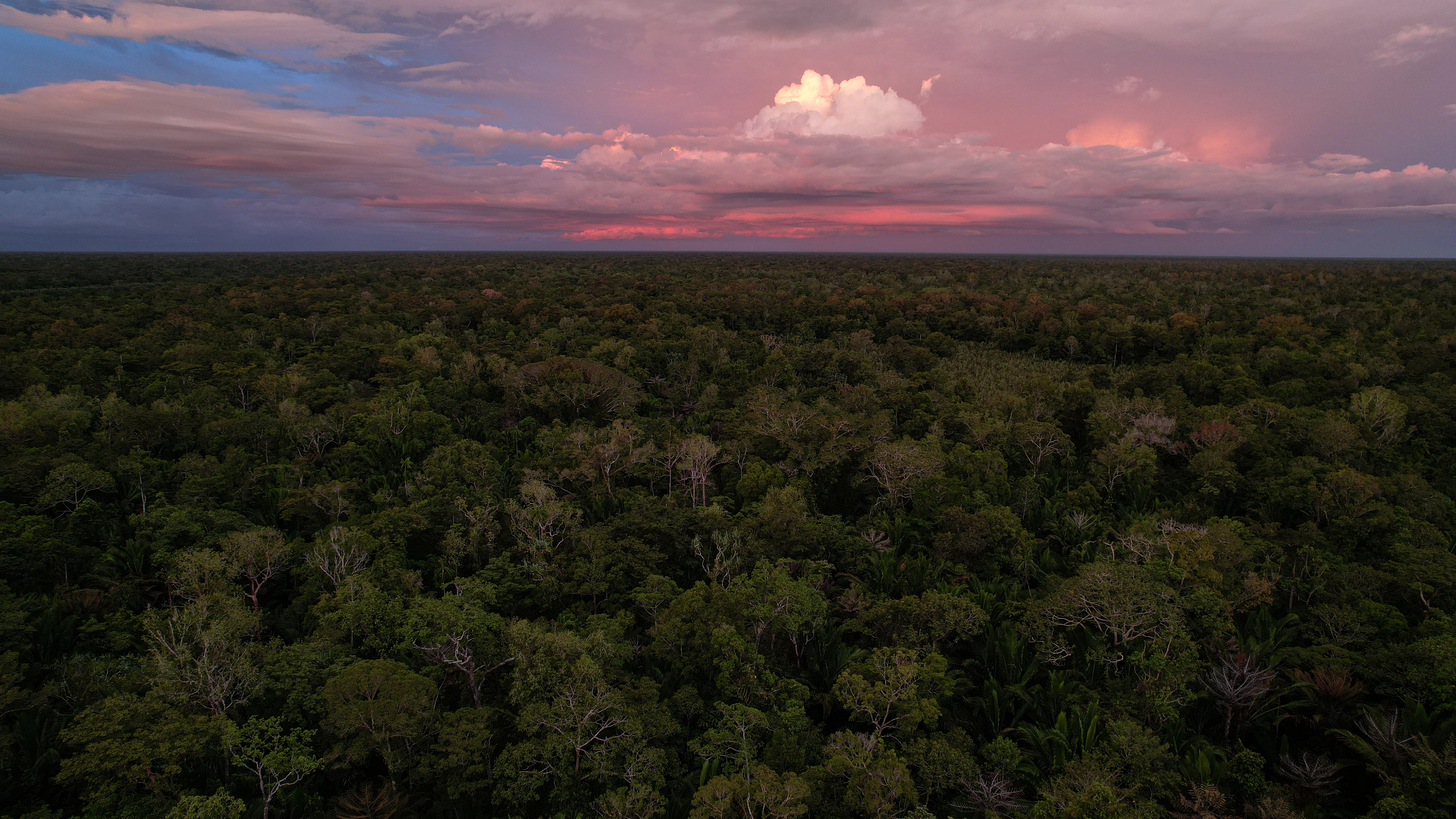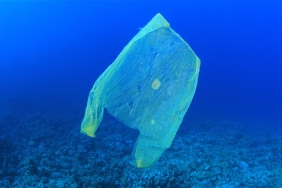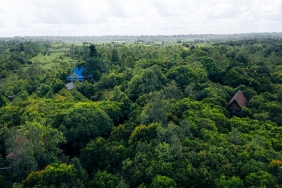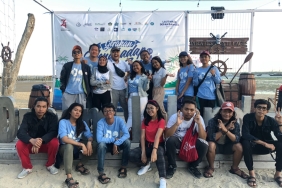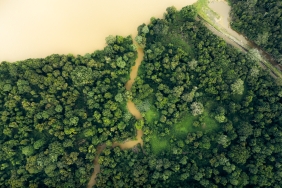NATIONAL AWAKENING DAY CELEBRATIONS IN BUMI PANDA
By: Natalia Trita Agnika
There was something different at Panda Earth on Friday (20/05). Coinciding with the celebration of National Awakening Day, WWF-Indonesia's environmental information house was filled with a group of students, media, and some student representatives from Papua. They joined a discussion themed "Awakening from Eastern Indonesia". The discussion was part of the talkshow series "Meet the Experts" conducted at Bumi Panda.
The event began with the singing of the song "Aku Papua" led by Fransisco Yassie and Roviana, two students from Papua who are studying at Padjadjaran University, Bandung. All present seemed to be immersed in the song while imagining Papua. After singing, Roviana expressed her longing for her homeland. "Its unique food such as papeda can rarely be found in other regions. In addition, the nature is very beautiful and cannot be seen anywhere else," she said. Fransisco also added that one of the things that makes him proud is the tolerance that exists in his homeland, Papua. He said that Papua is a miniature of Indonesia that is Diversity in Diversity.
On that occasion, Piter Roki Aloisius, Sustainable Forest Development Coordinator WWF-Indonesia Papua Program was present as a guest speaker. He presented the material "Awakening from Eastern Indonesia through Sustainable Forest Management for Indigenous Peoples in Papua". The existence of forests in Papua is the last bastion of defense for the existence of forests in Indonesia, given the increasingly worrying condition of forests in Sumatra and Kalimantan. In order for the forests in Papua not to suffer the same fate, an "awakening" is needed to protect and preserve Papua's forests.
Roki opened the presentation by explaining about the philosophy of trees and forests for indigenous people in Papua. Some utilize trees as houses to live in, trees as medicinal materials, trees as food sources, building materials, and part of culture. The explanation attracted the attention of the discussion participants, especially for those who were new to the culture in Papua. In fact, many participants were amazed when they were told that in Papua there are around 248 tribes and 260 languages.
Furthermore, Roki said that the utilization of forest products in Papua has not provided a decent profit for the indigenous people there. One of the efforts made to conserve forests in Papua that can also provide economic and social benefits to indigenous peoples is to conduct a Community Forestry program. The program is a community-based integrated sustainable forest management program that provides economic benefits to indigenous peoples. Through Community Forestry, indigenous communities can maintain their rights to manage forests while improving their welfare through business activities from the management of forest products, both timber and non-timber without having to be part of illegal logging activities. In addition, local governments also gain additional revenue for local development activities that does not come from taxes (non-tax) or private investment.
The discussion was lively. The participants, who had very little information about Papua, satisfied their curiosity by asking directly to the speakers who really knew the conditions there. Various questions arose. "In sustainable forest management, are there trees planted to replace them after they are cut down?" asked Nisa, a student from Padjadjaran University. Roki explained that each group assisted by WWF-Indonesia in the Community Forestry program is required to make a nursery so that when cutting down one tree, they must plant 10 trees. Other questions were also raised by the students, including about illegal logging, conflicts in Papua, about agroforestry, to how to approach indigenous peoples. The atmosphere was even more lively when the quiz session took place. Participants who managed to answer the questions correctly received souvenirs from Papua, namely Wamena coffee and Papuan bags. They also scrambled to answer the questions.
Students and the public who attended the National Awakening celebration in Panda's Land were very impressed with the discussions that had been organized. They got a lot of new information. One of the most impressed participants was Evan Lysandra, Putri Indonesia 2016 West Java. "Papua is a distant place, we get very little information and the information is not necessarily correct. And through this (discussion of "Awakening from Eastern Indonesia"Red) we can get the information directly from the source there. That's what can't be paid for. Very valuable," said the ITB Aviation Engineering graduate.
Closing the discussion, Devy Suradji as Marketing Director of WWF-Indonesia hoped that the public would get to know Papua better through various information delivered directly by the experts. Devy Suradji also said that Bumi Panda is open to be a place for various discussions related to the environment. "Please feel free if anyone has ideas or suggestions for discussion themes that they would like to raise. Just contact the Bumi Panda team," he said.

